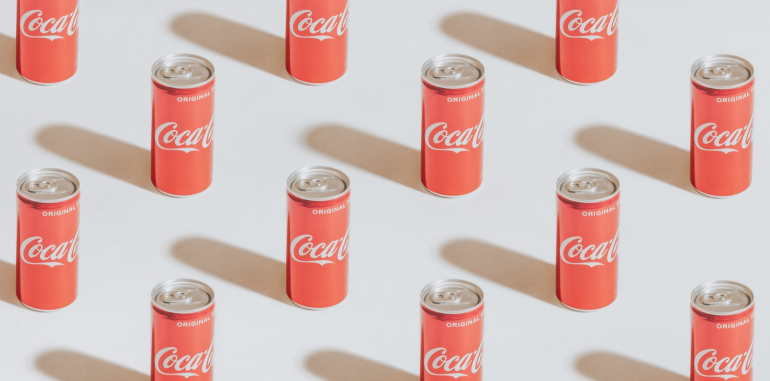Table Of Contents
Coke has been a US national drink for decades, we associate it with big holidays like Christmas, and average lunch or Friday night Netflix & chill. But hardly ever we link it with the dangers of sugar or caffeine addiction. The addiction to this delicious soft drink may lead to weight gain, and serious mental and physical health consequences.
There are many myths about cola addiction. In this article, I will discuss all the myths of coke addiction and how the addiction works.

What is Diet Coke addiction?
Coke addiction is a condition that develops after constantly consuming Coke. Not the drug, but a carbonated soft drink produced by Coca-Cola with caffeine added. Coke drink is a dreadful mix of caffeine and sugar – a perfect choice for those aiming to destroy their health. Caffeine immediately raises energy levels, so a person feels as if the need to rest is covered, which actually isn’t.
Caffeine and sugar, united in Coca-Cola, increase the production of dopamine, the pleasure hormone, and stimulate the pleasure centers of the brain.
Coke addiction is pretty similar to drug addiction as it arises precisely because they intensively stimulate this reward circuit.
Our brain thus begins to consider those substances as something rewarding for us and pushes us more and more to consume them day after day.
Diet Coke Addiction
While a 330-milliliters can of regular Coke contains 35 grams or about 7 teaspoons of sugar and 40 milligrams of caffeine, Coca-Cola Zero owes its name to the fact that it is sugar-free, as artificial sweeteners are used instead. However, this does not mean that we can consume it every day because it is sugar-free.
The artificial sweetener, sodium cyclamate, added to Coca-Cola Zero is 30-50 times sweeter than sugar and has remained at the centre of numerous controversies. When we ingest sugars the concentration of glucose in the blood increases which is the so-called glycemia, our body is equipped with a regulation system that allows us to keep blood sugar below a certain level. Appetite is stimulated but the absence of calories puts the body in anticipation of something that will never come.
However, they stimulate the release of insulin and leptin thus increasing the sense of hunger and altering the sense of satiety. Therefore, you may crave more and more diet coke – as you feel pleasure, but still are hungry.
The name of the game with Diet Coke is moderation. Drinking soft drinks must never be a substitute for mineral water and not even a habit. This way, diet coke will not be bad for you.
Does Diet Coke Have Caffeine?
If you prefer decaffeinated drinks, you should start thinking about how to quit Diet Coke, as the caffeine content in diet coke is even higher than in regular Coke. Coke Zero vs non-diet Coke caffeine content is 46 mg per 12-oz can versus 34 mg per 12-oz can.
However, it’s still three to four times less than in coffee. The same-sized coffee cup contains up to 140 mg of caffeine.
So, you may opt for caffeinated espresso with diet Coke on the rocks if you are seeking instant and temporary excitation stimulation.
What Happens If You Drink Diet Coke Daily?
Coke is a highly addictive substance, as it boosts satisfaction hormones instantly, as actually, many other carbonated drinks do due to the sugar in soda. The more fizzy drinks you have, the more you crave them. Here are :
- Trouble sleeping
- Irritability and anger
- Jitteriness, anxiety, and depression
- Fatigue, and headaches
- Increased blood pressure
- High blood sugar levels
- Liver dysfunction.
These are the reasons why diet coke is bad for you. Moreover, there are even more diet coke addiction side effects such as mood swings, depression, paranoia, anxiety, restlessness, weight gain, and poor memory.
What Happens When You Stop Drinking Diet Coke or other soda drinks?
Many people feel powerless over diet Coke, even though they know that drinking diet Coke isn’t better for your body than drinking regular Coca-Cola. However, diet Coke side effects are reversible and you can feel better once you cut on this drink. Actually, you may feel:
- more energy
- stable mood
- fewer cravings
- better metabolism
- stronger memory
Cutting down on diet Coke or any other soda also lowers your risk of obesity and diabetes. All in all, you simply feel and function better.
Is Diet Coke Addictive?
Coca-Cola Zero owes its name to the fact that it is sugar-free, as artificial sweeteners are used instead. Diet Coke is carbonated soda flavored with the artificial sweetener aspartame, made by the company G.D. Searle & Company. The drink was first marketed in the United States in 1982 and has been a popular soda ever since. Diet Coke is produced by Coca-Cola of Canada Limited and sold in over 100 countries worldwide.
Diet Coke is not addictive. The same cannot be said for regular Coke or Pepsi; both are highly addictive.
The reason is simple: The caffeine in Diet Coke is absorbed slowly and doesn’t have the same effect as the caffeine in other sodas.
The sweeteners topic has always been very complex and with very conflicting opinions to date for each sweetener, intake limits have been set within which their consumption is considered safe. According to other studies, however, their excessive consumption could cause impaired glucose tolerance thus increasing the onset of metabolic diseases and alterations in the intestinal bacterial microflora.
A recent study found that diet soda drinkers were more likely than non-diet soda drinkers to have fewer symptoms of depression and anxiety.
Does Diet Coke Cause Belly Fat?
A person abusing Coke may develop obesity and malnutrition at the same time as calories are consumed with no nutritional value for the body. However, when it comes to belly fat, we can not conclude that diet coke is the reason. On the one hand, in order to increase fat tissue, one has to consume extra calories – which are absent in diet coke. On the other hand, diet Coke still lifts one’s appetite and causes severe cravings, most likely for fast food. The results of pairing diet coke with unhealthy abundant meals may end up with extra pounds and belly fat.
Bottom line
All in all, Coca-Cola and diet coke are bad for your health, both mental and physical. In addition to considerable amounts of sugar and caffeine, the beverage jeopardizes one’s well-being by developing an addiction to it. However, drinking coke addiction is completely reversible as well as its’ symptoms and consequences, once a person decides to take up healthier habits.
William is from Canada, he is passionate nutrition & wellness writer. William understands that the topic of wellness is still not well understood, so his goal is to enlighten and teach people how to live healthier and happier in their bodies.










I really like reading through a post that can make men and women think. Also, thank you for allowing me to comment!
I agree with this info! I was powerless over diet coke, but his article provides a comprehensive view of the often overlooked dangers of Coke addiction.
Hi, James👋
It’s great to hear that you found the article insightful. Recognizing the potential dangers of Coke addiction is an important step.